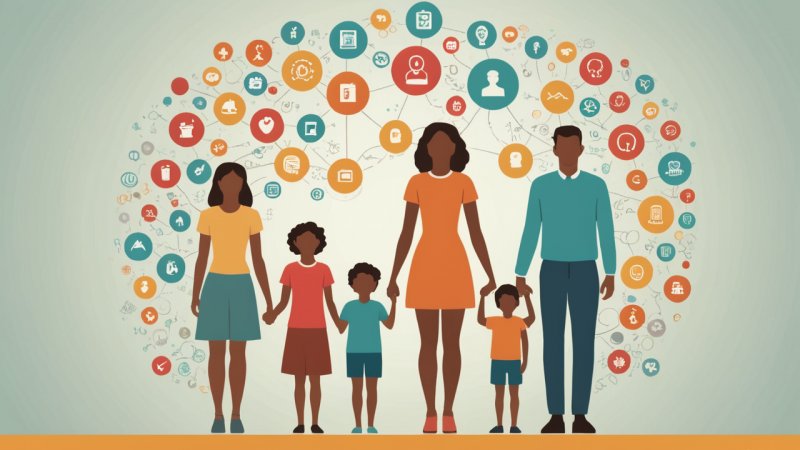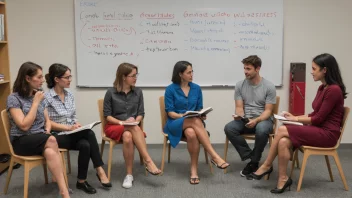Social institutions play a crucial role in shaping individual behavior, influencing everything from personal values to social norms. Among these institutions, the family and education are two of the most significant. While both serve to socialize individuals and instill societal values, they operate in distinct ways and have unique impacts on behavior. This article compares the family and educational institutions, examining their roles, advantages, disadvantages, and differences in shaping individual behavior.
Understanding the Family as a Social Institution
The family is often regarded as the primary social institution that introduces individuals to societal norms and values. It is typically the first environment in which a person learns about relationships, responsibilities, and cultural expectations.
Pros of Family Influence
- Emotional Support: Families provide emotional and psychological support, fostering a sense of belonging and security.
- Value Transmission: Families are essential in transmitting cultural values and beliefs, which shape an individual's worldview.
- Socialization: Through family interactions, individuals learn social skills, communication, and behavioral norms.
Cons of Family Influence
- Limited Perspectives: Families may inadvertently promote narrow viewpoints, limiting exposure to diverse ideas and experiences.
- Potential for Conflict: Family dynamics can lead to conflict and stress, which may negatively impact individual behavior and mental health.
- Dependency: Over-reliance on family support can hinder personal development and independence.
The Role of Education as a Social Institution
Education, on the other hand, is a formal institution designed to impart knowledge and skills. It serves as a platform for socialization that extends beyond familial ties, introducing individuals to a broader societal context.
Pros of Educational Influence
- Broadening Perspectives: Education exposes individuals to diverse ideas, cultures, and viewpoints, promoting critical thinking and open-mindedness.
- Skill Development: Educational institutions equip individuals with essential skills and knowledge required for personal and professional success.
- Social Mobility: Education can facilitate upward social mobility, allowing individuals to improve their socio-economic status.
Cons of Educational Influence
- Standardization: The education system often emphasizes standardized testing and curricula, which may not cater to individual learning styles.
- Pressure and Stress: The competitive nature of educational environments can lead to significant stress and anxiety among students.
- Social Inequality: Access to quality education can be uneven, perpetuating social inequalities and limiting opportunities for certain groups.
Comparative Analysis: Family vs. Education
While both family and education are vital in shaping individual behavior, they differ significantly in their approaches and outcomes.
Scope of Influence
The family primarily influences an individual's early development, instilling foundational values and behaviors. In contrast, education expands this influence by introducing individuals to a wider societal framework, fostering critical thinking and independence.
Nature of Relationships
Family relationships are often characterized by emotional bonds and support, while educational relationships can be more transactional, focusing on knowledge transfer and skill acquisition. This difference can impact how individuals perceive authority and collaboration in various aspects of life.
Long-term Impact
The impact of family is often long-lasting, shaping core values and beliefs that individuals carry throughout their lives. Educational experiences, while influential, may vary significantly based on personal choices and opportunities, leading to diverse outcomes.
Conclusion
In summary, both the family and education are essential social institutions that significantly influence individual behavior. The family provides emotional support and foundational values, while education broadens perspectives and equips individuals with necessary skills. Understanding the strengths and limitations of each institution can help individuals navigate their social environments more effectively. Ultimately, a balance between familial support and educational opportunities may offer the most beneficial outcomes for personal development and societal engagement.






